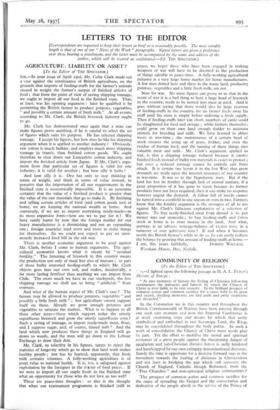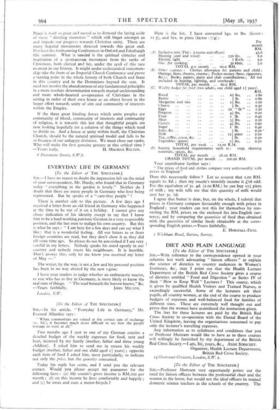lighted upon the following passage in H. A. L. Fisher's
History of Europe :
"At rare moments of history the feeling of Christian fellowship overmasters the jealousies and hatreds by which the Church of Christ is ever liable to be rent asunder. In the brilliant prospect of common action and common sacrifice for a cause held to be great and sacred, dividing memories arc laid aside and petty suspicions are discarded."
In the Coronation we in this country and throughout the British Commonwealth of Nations have been passing through one such rare moment and now the Imperial Conference is at work examining ways and means by which that unity symboliscel and embodied in our Sovereign Lord, the King, may be consolidated throughout the body politic. In such a work of consolidation the Church of Christ must needs play its part. Yet the effort to mobilise the moral and spiritual resources of a great people against the threatening danger of secularism and sub-Christian divisive forces is sadly hindered and handicapped by our own unhappy denominational divisions. Surely the time is opportune for a decisive forward step in the movement towards the healing of divisions in Christendom and not least in bridging the gap which still separates the Church of England, Catholic though Reformed, from the "Free Churches" and non-episcopal religious communities ?
The prospect of common action and common sacrifice for the cause of spreading the Gospel and the consecration and dedication of the people afresh to the service of the Prince of
Peace is itself so great and sacred as to demand the laying aside of those "dividing memories" which still linger amongst us and impede our progress towards Christian unity. There are many hopeful movements directed towards this great end. Not least the forthcoming Conferences in Oxford and Edinburgh this summer. What is needed is the spiritual stimulus and inspiration of a spontaneous movement from the ranks of Christians, both clerical and lay, under the spell of this rare moment in our history. It might under ecclesiastical statesman- ship take the form of an Imperial Church Conference and prove a turning point in the whole history of both Church and State in this country and in the Dominions beyond the seas. It need not involve the abandonment of any fundamental principles in a more resolute determination towards mutual understanding and more whole-hearted co-operation of Christians in the setting in order of their own house as an object lesson in the larger effort towards unity of aim and community of interests within the Empire.
If the three great binding forces which unite peoples are community of blood, community of interests and community of religion, it is towards this last that thoughtful people are now looking hopefully for a solution of the things which tend to divide us. And a house at unity within itself, the Christian Church, should be the natural spiritual model and fails to be so because of our unhappy divisions. We must close our ranks. Who will make the first genuine gesture at this critical time ?
6 Ennismore Street, S. W.7.







































 Previous page
Previous page